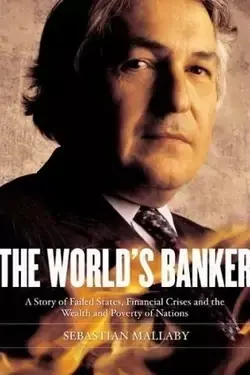
The World's Banker
A Story of Failed States, Financial Crises, and the Wealth and Poverty of Nations

- Book
- Foreign policy analyses written by CFR fellows and published by the trade presses, academic presses, or the Council on Foreign Relations Press.
Since 9/11, many have observed that global security depends upon improving conditions for the world's poor. But how to make that happen? No institution has grappled harder with this challenge than the World Bank. Drawing on some 200 interviews, including twenty hours of discussions with World Bank President James Wolfensohn, Washington Post editorial columnist and former Council Fellow Sebastian Mallaby takes readers inside the world's premier development institution. The World's Banker brings to life some of the bank's battles, from the reconstruction of Bosnia to the 1997 Asian crisis, to the battle against AIDS and the push to attain the Millennium Development Goals. And it maps the bank's evolution away from the macroeconomic focus of the "Washington Consensus" to a broader understanding of development that considers corruption, democratic participation, and the quality of political institutions. For the growing circle of people who care about international development, here is a book that explains the 800-pound gorilla of the field.
The explanation is at times unsettling. Mallaby's account shows how hard it is for a big multilateral institution to be effective. Rich countries are forever saddling the World Bank with new mandates, declaring one year that its priority must be universal education and the next year that it must concentrate on AIDS, and undermining its focus in the process. Nongovernmental groups complicate the bank's efforts, too, mounting campaigns against its projects that are sometimes dishonest and unscrupulous.
More on:
The World's Banker is at once a portrait of an intellectual quest for ways to turn a sliver of the rich world's plenty into progress against poverty and a case study in the frustrations of the global system. Never has the bank's work been more important, more in the public eye, or more controversial than it is today, when the emergence of terrorist sanctuaries in failed states have dramatized the connection between development and security. And never has the place of multilateral institutions in U.S. foreign policy been so politically contested. Mallaby parlays his extraordinary access to the World Bank and its leader into a revealing account of the challenges and contradictions of the West's efforts to enlarge the world's wealth. The result is a smart narrative joyride written by an author who combines enthralling storytelling with fresh and incisive analysis.
A Council on Foreign Relations Book
More on:
 Online Store
Online Store